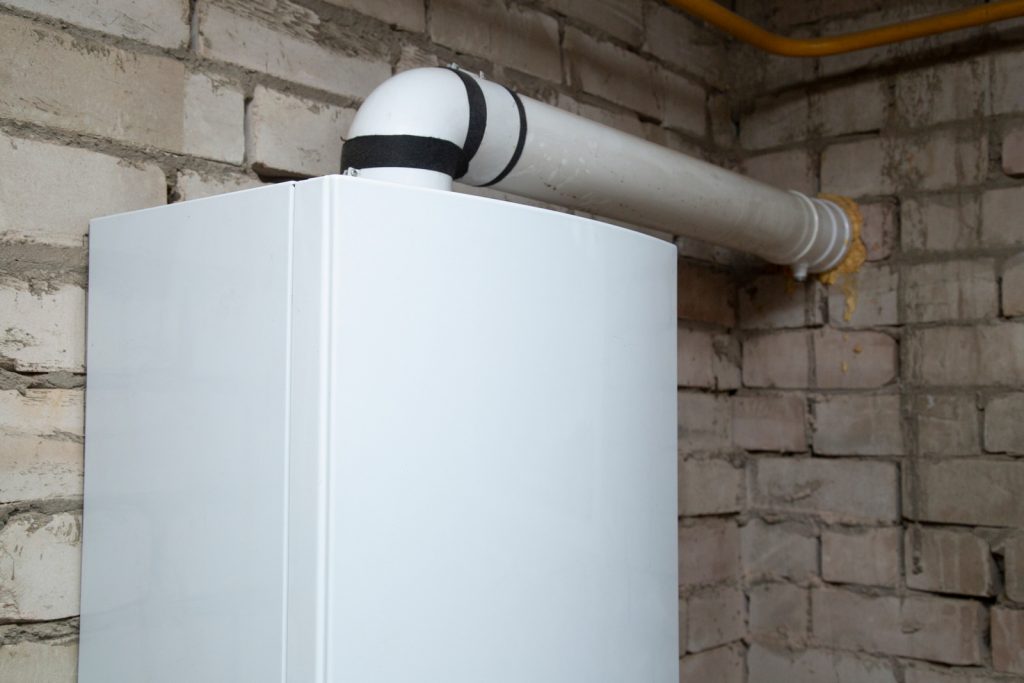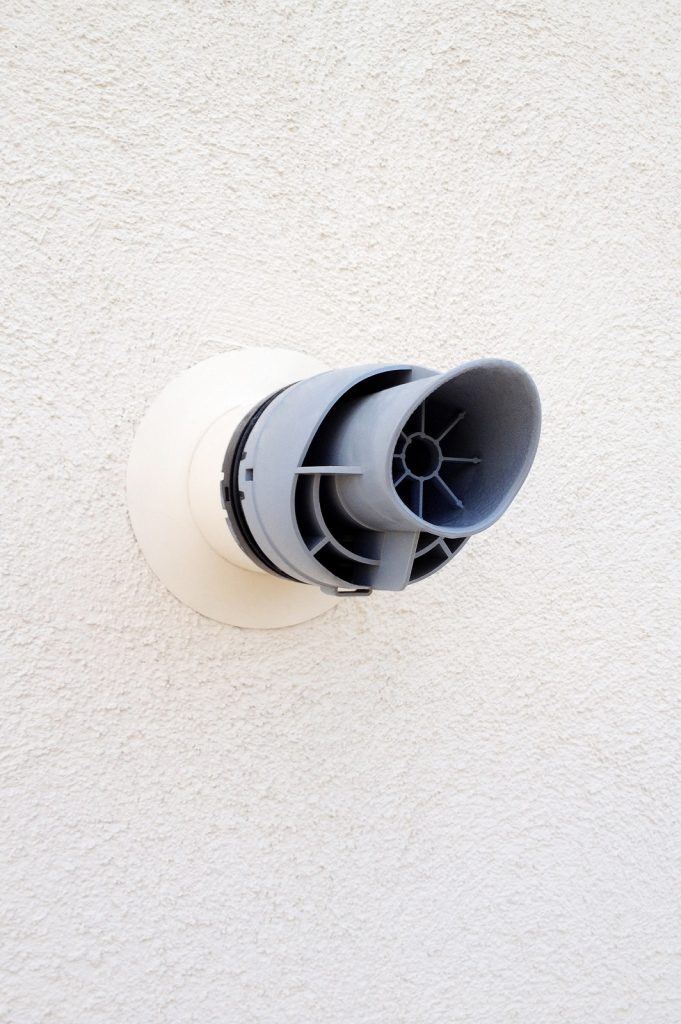What is a boiler flue?
A flue is a pipe or duct that carries away air and waste fumes produced by the boiler as it burns fuels such as gas and oil. It is a vitally important part of the boiler and heating system which safely removes carbon monoxide and carbon dioxide – products of combustion that a system produces as its heating water, away to the outside atmosphere.

What comes out of a boiler flue?
When a boiler and its flue are working properly and the system is burning gas correctly, it is mostly carbon dioxide and water vapour that is produced and expelled. When a boiler isn’t functioning properly for whatever reason, carbon monoxide can be produced, which is potentially fatal.

How to tell if your boiler flue is blocked
A blocked flue can have any of the following signs:
- A noisy boiler. Because the system isn’t able to function properly, it puts strain on some boiler components so they have to work harder and this can make a boiler noisier than usual, with possibly heavy sounds.
- Staining or sooting around the pipe and its seals. A working flue should not have any stains or sooting on it or around it.
- Water leaks around the boiler or mouth of the flue pipe. If air and steam cannot be carried away fully, you may notice water around where the flue exits the boiler or even underneath it.
- Strange smell. You may notice an unusual smell around the boiler because the exhaust fumes are trapped and then come into the room.
- Carbon monoxide alarm is triggered. If you have an alarm in the same room as the boiler, it may be triggered because of combustion gases build-up.
Do not ignore any of these signs. A blocked flue pipe can trap harmful gases in the boiler and if they can’t be removed to outside, will enter the home and be breathed in by occupants.
What can get into a boiler flue?
Boiler flues tend to get blocked from outside mainly because this is where the opening for the air inlet is. Twigs, leaves, birds’ nests and small debris can enter the flue or be sucked in. If you live close to trees, it is a good idea to have a guard around the flue terminal to stop leaves from entering.

How to unblock a boiler flue
If you find the flue is blocked, make sure to turn off the boiler. Don’t have it running while you start unblocking the flue. Because most debris enters from the outside part of the flue pipe, at the terminal, you should check here and remove easy to get to debris.
Only a gas safe registered engineer will be able to open the combustion chamber of the boiler and check from inside and remove any blockage from there.
Consider taking out a care plan so your boiler is covered for emergencies and breakdowns throughout the year. Hometree offers customers peace of mind with home care packages for your boiler, central heating, plumbing, drains and home electrics all at an affordable monthly or annual cost. Click the banner below to find out more:
What to do if you have a blockage in the boiler flue
In the event the flue is blocked, turn off the boiler straight away. It is better to stop the gas supply to the boiler entirely but if you’re not sure how to do this, simply switch it off. Ventilate the property as much as possible and call a gas safe engineer to inspect the boiler inside and out.
How to stop boiler flues from getting blocked
Install the flue correctly
The first thing is to ensure the flue has been installed in the correct position. There are specific requirements for their location and a heating engineer should be familiar with them. Specifically keeping the termination at an adequate distance from guttering and soil and down pipes etc will help.
Check the boiler is sealed correctly
The main requirement is for boiler flues to be sealed both inside and outside to weatherproof the termination so weather and/or combustion fumes don’t reenter the property. This can be achieved with a sand and cement mixture. Some installers will also use special silicone type materials.
The flue also has to be fitted securely so it can’t be disconnected and pulled away from the boiler from the outside.
Fit a guard over the termination
Fitting a guard over the terminal will help prevent leaves and twigs from entering and blocking the flue. Check the flue pipe for damage regularly as prevention is always better than cure.
*The information in this article should be used for general guidance only and not as financial or health advice. Full details are on the link in the footer to our disclaimer page. Always discuss your requirements with a competent and suitably qualified professional before undertaking any work.
Affiliate disclosure
Heatology.co are participants in a variety of affiliate schemes which help fund and run this website, visitors who follow our links and purchase a product may earn Heatology.co a commission. The money we make from affiliate marketing costs you nothing but keeps us online, so thank you for your continued support!
